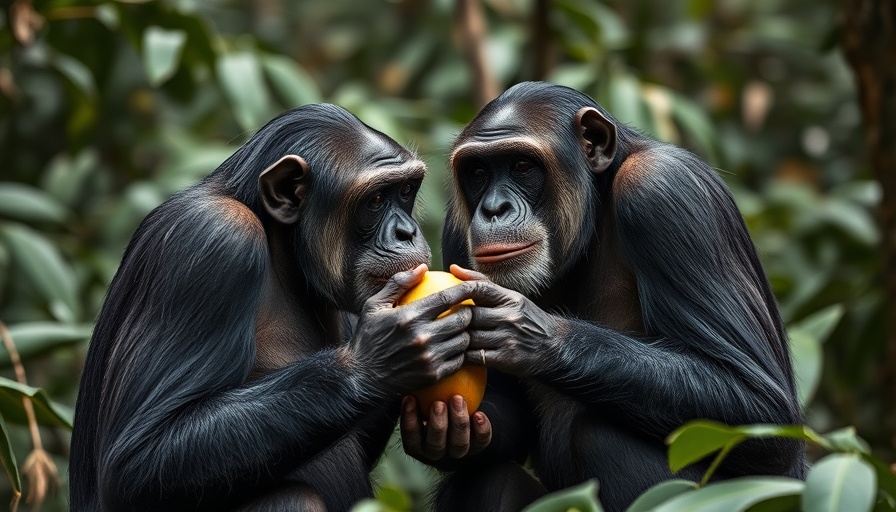
Understanding Scrumping: A New Lens on Primate Behavior
Recent research from Dartmouth College sheds light on a fascinating primate behavior termed "scrumping". This term refers to the practice of apes, particularly African species, eating ripe, fermented fruit that has fallen from trees. This habit may provide crucial insights into how early human ancestors adapted to their environments, particularly regarding alcohol consumption.
Scrumping's Role in Human Evolution
The act of scrumping suggests that our ancestors encountered fermented fruit long before the advent of brewing. Researchers indicate that this dietary habit could have contributed to a significant evolution in our ability to metabolize alcohol, potentially enhancing social interactions among early human communities. The genetic adaptations that improved alcohol metabolism might be traced back to a single amino acid change that allowed our ancestors to process alcohol with greater efficiency.
The Cultural Implications of Alcohol Use
From a broader perspective, understanding the roots of alcohol tolerance not only gives us insight into human evolution but also into how alcohol has played a role in social cohesion and cultural development. Throughout history, the consumption of alcohol has been tied to rituals and community gatherings, suggesting that scrumping may have been a precursor to societal norms surrounding drinks today. By examining how primates interact with their environment, we gain a clearer understanding of our own cultural practices.
Cross-Disciplinary Insights into Alcohol Consumption
This discovery prompts reflection on the intersection of anthropology, genetics, and cultural studies. The implications of scrumping transcend mere dietary preferences, suggesting deeper biological and sociocultural connections among primates and humans. If global cultural practices surrounding alcohol consumption can relate back to such roots, it is worth exploring how current societal views on alcohol may need reevaluation in light of our evolutionary history.
Potential Future Directions for Research
As researchers continue to explore scrumping, there are many possible avenues for future studies. Understanding how urbanized environments affect similar behaviors in modern primates may lead us to further insights about human adaptability. Moreover, research into the psychological effects of alcohol, rooted in this evolutionary framework, could provide valuable information to those studying social behaviors and public health.
Living in Context: Alcohol's Role in Lifestyle and Social Dynamics
In cities like Dallas, where nightlife and social drinking are prominent, the implications of our evolutionary history become even more relevant. The way we interact with alcohol—whether in bars, restaurants, or social gatherings—reflects behaviors that have been shaped over millennia. For Dallas residents, understanding these cultural ties may help foster a healthier approach to alcohol consumption and social interactions.
Conclusion: Embracing Our Evolutionary Past
In the grand tapestry of human evolution, the practice of scrumping serves as a bridge between our primate ancestors and modern society's relationship with alcohol. By studying this behavior, researchers are not merely uncovering how we metabolize alcohol but are also inviting us to rethink our cultural practices surrounding it. As we move forward, it may be beneficial for individuals to engage more critically with their drinking habits, considering how they fit into a broader historical and cultural context. To delve deeper into your relationship with alcohol and its historical implications, consider engaging with local educational resources and community-driven initiatives that foster informed drinking practices.
 Add Element
Add Element  Add Row
Add Row 



Write A Comment